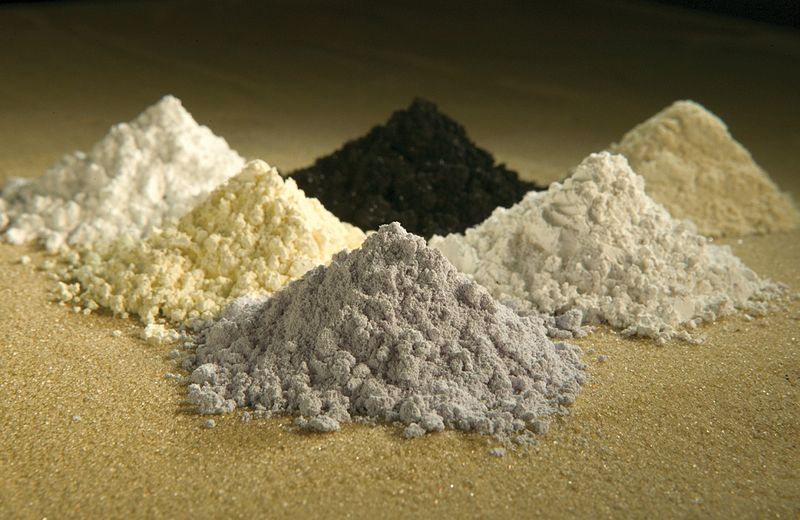China’s trade reprisals may extend to minerals like rare earths

China isn’t short of options when it comes to critical minerals that could be used as counters in a trade war with the US.
Beijing’s ban on Tuesday covering sales to the US of gallium, germanium, antimony and superhard materials, and tighter controls on graphite, are likely an opening salvo in export controls that could be extended to dozens of niche materials if trade frictions with Washington escalate.
“This may only be the start of the country ensuring national security and its strategic role in mineral resources,” Citic Securities Co. said in a note.
The state-backed brokerage listed 10 commodities, including the 17 elements grouped as rare earths, in which China holds an outsized role as producer or processor. The minerals are typically crucial to high-tech manufacturing, including so-called dual uses in military applications.
Beijing’s latest restrictions were imposed after the White House on Monday slapped fresh curbs on the sale to China of high-end memory chips made by US and foreign companies. The Biden administration is using targeted measures to slow the country’s development of advanced semiconductors and artificial intelligence systems that may help its military.
President-elect Donald Trump, however, has threatened import tariffs as high as 60% on all Chinese goods, a measure that would invite a heavy response from Beijing.
Beijing is reminding Washington—including the incoming Trump administration—that it has a new arrow in its quiver, said Bloomberg Economics. We expect a second US-China trade war in Donald Trump’s second term. One key difference could be that Beijing escalates by using export controls in response to US tariffs.
As well as rare earths, Citic’s list includes tungsten, molybdenum, titanium, tin, indium, chromium, tantalum, niobium and cesium as candidates for export curbs. China also enjoys dominance in other commodities such as arsenic, which has a wide range of applications from herbicides to telecommunications. In recent years, the US has relied on China for 60% of its supply of the metal, according to the US Geological Survey.
Rare earths, meanwhile, have been a feature of China’s previous trade disputes, and last year the government halted the export of a range of technologies associated with processing the elements, making it harder for the US and its allies to bolster supplies of the strategic raw materials.
In the wake of Beijing’s ban, investors rushed into companies that mine and refine critical minerals. In China, Yunnan Lincang Xinyuan Germanium Industrial Co. surged by 10%, the daily limit, while Yunnan Chihong Zinc & Germanium Co. rose as much as 7.8%.
In Sydney, Lynas Rare Earths Ltd. advanced as much as 5.6%. The company last month opened the largest processing facility for the elements outside China.
The problem for Beijing is that further curbs on strategic minerals will only hasten efforts by the US and its allies to counter its dominance, which will dilute their impact.
For example, when China first tightened export controls on germanium and gallium in 2023, it would have signaled to buyers they needed to diversify supply. As a result, Chinese customs data showed zero exports of the two minerals to the US this year, which suggests that firms were instead tapping inventories or procuring the metal from other sources.
Read More: Canada mining group uses China ban to push back on Trump tariffs
{{ commodity.name }}
{{ post.title }}
{{ post.date }}




Comments
Ricky Cruz
Finally!! Somebody has opened its eyes and stop trading candy wraps (USD) for precious minerals.